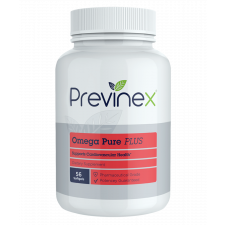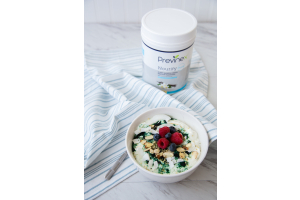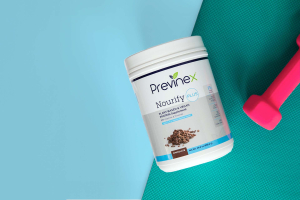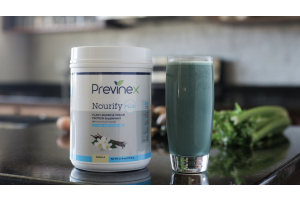
If you asked your physician to recommend just one supplement to take, along with a high quality multi vitamin and mineral, do you know what it would be? Chances are it would be a fish oil rich in Omega-3’s EPA and DHA.
The two most important organs in your body – your heart and brain – can’t function normally without eicosapentaenoic acid and docosahexaenoic acid, commonly known as EPA and DHA. These two long-chain Omega-3 fatty acids are essential because your body needs them, but cannot make them. Thus, they must be obtained from the foods you eat or through supplements.
Fatty acids benefit more than just heart and brain health, their benefits can be seen in almost every part of your body. As one of the most scientifically and clinically studied essential nutrients, Omega-3’s have gained wide recognition from physicians and health professionals as being one of the most healthful “super-nutrients.”
The simple conclusion? Run out to the store and grab the nearest fish oil supplement. Not so fast! The problem is, not all fish oil supplements are created equal. In fact, they’re largely unequal with vastly different ingredients (where the fish is sourced, for example) and levels of the important EPA and DHA. Many of the fish oil supplements on the market actually contain very low levels EPA and DHA.
So, how do you pick a fish oil supplement that’s actually going to provide the health benefits it claims? What do you look for to ensure your fish oil supplement actually contains the right levels of EPA and DHA?
Here are 4 tips to ensure you’re taking a fish oil supplements that will actually provide what the label says:
1) Fuzzy Math
Many fish oil supplements at the store claim high levels of Omega-3 fatty acids. Sounds good, right? Not when you dig a little deeper. The supplement facts on the back of the bottle tell the rest of the story. How much of the total Omega-3 fatty acids are actually EPA and DHA? That’s what’s actually providing the health benefits!
Pro Tip: Add the amount of EPA and DHA on the back of the label, if it doesn’t equal the total amount of Omega-3 fatty acids then put that bottle right back on the shelf. How do we know what the rest of the Omega-3 fatty acids that it contains actually are? The answer…we don’t.
2) How much EPA & DHA?
As mentioned above, many fish oil supplements will tout high levels of Omega-3 fatty acids, but little of that will actually be EPA & DHA. While that’s a problem in and of itself, the next question is how much EPA and DHA should a fish oil supplement contain?
The typical fish oil supplement contains approximately 300mg of EPA and 200mg of DHA. Some contain even less. For maximum benefit, look for a fish oil that contains over 500 mg per serving each of both EPA and DHA, for a total Omega-3 fatty acid count of over 1,000 mg. Also, the product should have a higher ratio of EPA than DHA.
3) Is Your Fish Oil Pharmaceutical Grade?
If a fish oil supplement isn’t pharmaceutical grade, there’s no way to ensure it’s gone through the appropriate testing processes. Food Grade supplements are not required to test ingredients pre-production to remove contaminants. If your fish oil isn’t pharmaceutical grade there’s a chance it could contain heavy metals, PCB’s, pesticides, mercury, or organic residue. With a pharmaceutical grade fish oil supplement those dangerous toxins are removed.
To drive this point home, at Previnex, in addition to manufacturing all of our products in a pharmaceutical grade, FDA-Registered Drug facility, we put our fish oil through a triple molecular distillation process to ensure that our Omega Pure Plus is free from any contaminants.
4) What Are Those “Other Ingredients”?
When purchasing any supplement, or really any product you plan to eat/digest, always read the “other ingredients” list on the back of the product. While certain added ingredients are necessary, look for that list to be as short as possible. There’s no reason to have ingredients such as food glaze, corn starch, Soybean Oil etc., in a fish oil product.
Outside of Omega-3 fatty acids (made up of EPA and DHA) and quality Vitamin D3, your fish oil should contain very few “other ingredients”.
Conclusion:
Remember, your body does not produce omega fatty acids and need to get this important “super nutrient” from diet or supplementation. Given the breadth of research that shows omega fatty acids deliver tangible health benefits, a high quality fish oil supplement can help enhance your heart, brain, immune and bone and joint health. That said, make sure to select one that delivers on the four key points above to enhance your health today!






